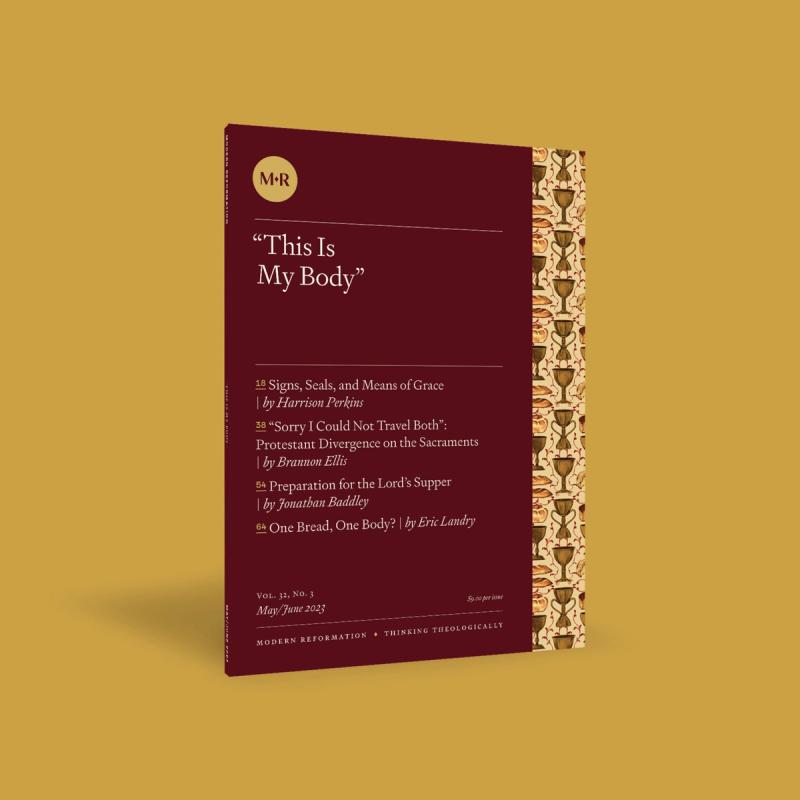The Marburg Colloquy (1529) may have been the best chance the Reformation ever had to reconcile the early German Lutheran and Swiss Reformed parties into a doctrinally unified Protestantism. Luther, Zwingli, and other leading voices on both sides were in attendance. As expected, the greatest point of contention at the conference was the Lord’s Supper. This made Luther’s performance during his opening argument all the more striking. After summarizing his convictions about the Supper, he pulled back the cloth on the table at which he and the other participants sat, wrote with a piece of chalk a few words in Latin, replaced the cloth, and resumed his seat.
Often during the ensuing debate, whenever Zwingli or another Swiss Reformed representative said something he didn’t agree with, Luther would repeat the Latin he had written under the tablecloth. At one point, when Zwingli pressed him particularly hard to give proof for his position, Luther threw back the cloth and read the words on the table aloud to Zwingli: Hoc est corpus meum, “This is my body,” which Jesus spoke over broken bread before distributing it to his disciples on the night he was betrayed.
The Marburg Colloquy ended without reconciliation.* Over the ensuing five centuries, the conference was endlessly relitigated among Protestants, seemingly without much real progress beyond where things had stood in 1529. Luther has been accused of being unreasonable at Marburg just as often as the Swiss have been accused of being too reasonable (in the sense of relying too much on human reason to plumb the depths of divine mystery). As with so many things, the truth is likely somewhere in the middle. Luther was justified in doubling down on his confidence in the express word of God—“This is my body”—rather than human judgment. It was the Serpent, after all, who first sowed doubt in God’s promises by asking, “Did God really say?” (Gen. 3:1). For Luther, if God says it, that settles it. The Swiss Reformed were likewise justified in their frustration at Luther’s obstinate unwillingness to reason together (or, apparently, to give them any benefit of the doubt that they too could fully trust God’s word without fully agreeing with him).
Our theme for this issue is “This Is My Body.” We approach the Supper in particular, and the sacraments in general, from historical, theological, and pastoral angles. We also feature our own colloquy of sorts, with an excerpt of a classic White Horse Inn broadcast featuring Lutheran, Anglican, Reformed, and Baptist hosts sharing their perspectives on the nature and meaning of the Supper. Although they disagree with one another, I think you’ll concur that they show just the right amount of reasonableness in doing so.
Although the interconfessional conversations we host here in the pages of Modern Reformation may not be as momentous as Marburg, I dare say we’re making progress in mutual understanding and charity nonetheless.
Brannon Ellis Executive Editor







